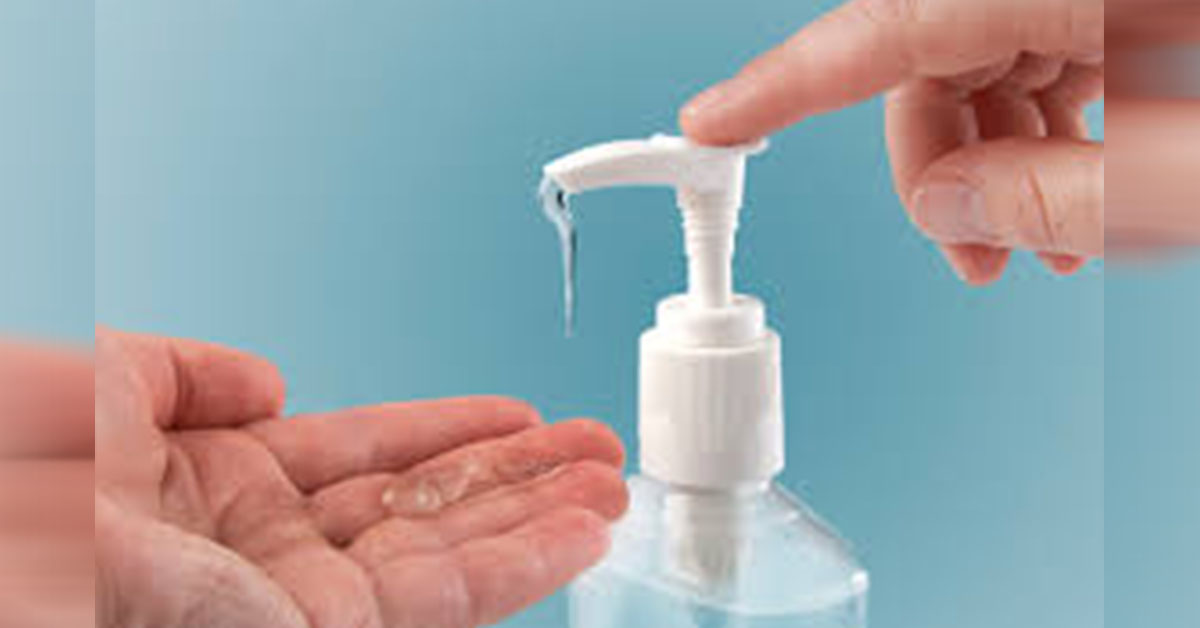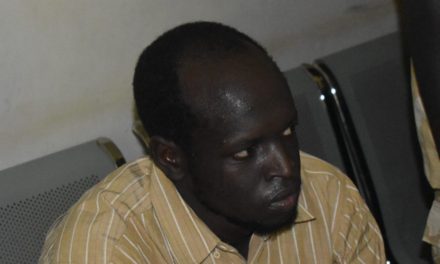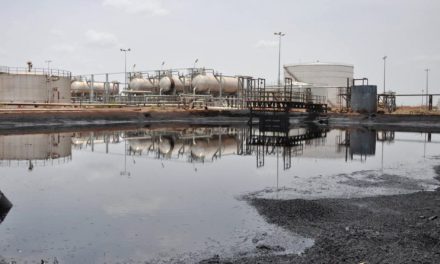
Fake Sanitizers fight the war against COVID-19

By Mairura Makori
Faith Oneya, a prominent Kenyan journalist, narration on her Facebook account about her experience with fake sanitizers was covered by a funny and angry tone.
She detailed how on her way home, in the matatu [public taxi], a woman sought to speak to the driver and though she conversed in a language she didn’t understand, she flagged off the two keywords, “sanitizer” and “corona” somewhere.
“She was carrying two bottles of a certain liquid. Some people call it “mkorogo”.”Na sio ya 500 (Not the 500 bob one),” she continued.
According to Ms. Oneya, a SACCO guy, “the one who wears a blue overcoat”, joined them. He opened one of the bottles and smelled it.
“Was Mr. Blue Overcoat an expert in sanitizers?” she asked on her Facebook page.
The next evening, “Mr. Blue Overcoat” with a spraying can that had an unnamed liquid inside. Ms. Oneya remained convinced that the lady must have convinced them to buy her chemicals. “Mr. Blue Overcoat sprayed our hands with the liquid which smelled like a cross between Nice & Lovely shampoo and methylated spirit. I watched it dry in my left hand. It left a whitish patch,” she narrated, pointing to the Cabinet Secretary of Health Mutahi Kagwe that the matatu operators “are just following instructions.”
“ Sanitation is resting in peace” she quips
James Okongo, in the same thread, pointed out that Even some supermarkets have fake sanitizers. “My hands have been smelling funny lately.”
Kenya reported the first death from COVID-19, and 31 confirmed cases. The Government has put in place strict measures to curb the spread, including the demand that any Public Service Van (PSV) has to provide hand-sanitizers for all passengers before boarding. Perhaps this is what leads to the above ordeal.
As the country seeks to curb the disease, unscrupulous businessmen have taken advantage of the artificial shortage, coming up with counterfeit sanitizers that have been on the shelves of supermarkets and the streets. Price hoarding has forced many to resort to the substandard ones in a bid to keep clean.
Already, detectives have launched a manhunt for companies behind seven different fake brands of sanitizers located in Nakuru and Nairobi. The Kenya Bureau of Standards flagged off seven different brands of counterfeit sanitizers which had been brought to their attention by the members of the public.
“We received information from the members of the public that, some traders are selling sanitizers, without the standardization mark (SM) from KEBS, meaning they are fake, and we are working with the Directorate of Criminal investigations ( DCI) to nab the manufacturers who are on the run,” said Director Peter Gaigwara in an interview with Citizen Digital.
Among the products nabbed were OPTZAR Advanced (Opttum Enterprises Ltd), 0-Germs (Nakuru) and Pure Magic (Aromakare Ltd in Lunga Lunga Square),” said KEBS Director Peter Gaigwara.
Other products included Angelicas Luxury (A & J London in South C), Dulax, San Gel (Dulax Enterprises in Kariobangi), Lulu (Map Cleaning Services Ltd), and Vicente (Vicente Caps, Thika Road).
In Uganda, Archery laboratory, a company owned by Stephen Night and Aisha Namawejje and registered by the Uganda Registration Service Bureau (URSB), is claimed to be making fake sanitizers. The couple was arrested by officers from Katwe Police station after a tip-off from the public and are being held until investigations into the matter are complete.
“The mentioned suspects were selling fake sanitizers to the public claiming that it cures Coronavirus. We have put them in the police cells awaiting preparation of a charge sheet and confirmation from URSB on what items they are supposed to produce,” said Patrick Onyanga, Kampala Metropolitan police spokesperson.
Ugandan officials have been on high alert on the possibility of the influx of fake sanitizers into the market arising from the growing demand.
“We have fears on the influx of fake sanitizers due to the increased demand and thus given direction to the National Drugs Authority (NDA) to be on high alert for such incidences and ensure that genuine sanitizers with 60% alcohol are allowed on the market,” said Diana Atwine, Permanent Secretary, Ministry of Health.
Citizens in Rwanda were duped into buying glycerin which had a glued paper claiming it was sanitizer.
“Today, I went to this Pharmacy looking for a ‘hand sanitizer’, When I got home & tried to use I don’t know how I realized that the word “hand sanitizer” was written on a piece of paper & glued on the bottle covering the word “Glycerin,” posted Isimbi Eduige on her twitter account.
Isimbi further noted that on returning the product to the shop, she was convinced that it can perform the same purpose the sanitizer does.
These cases are making the efforts by the different governments of fighting COVID-19 a hard task with the virus bound to spread if the vices are not curbed.
In a bid to curb these, the Kenyan government has resolved through corporations in the oil industry to produce sanitizers and distribute them to its citizens across the country. The drive will be led by the Kenyan Pipeline Company (KPC) and will include private corporations that have volunteered to help out.
“KPC will liaise with the oil industry players, who have expressed willingness to produce the sanitizers, for the expedited manufacture and distribution. Further, KPC will implement an accountability framework to ensure that the ethanol is utilized for the manufacture and distribution of the sanitizers,” said a statement by the Head of Public Service, Joseph Kinyua.
This move is aimed at reducing the cost of sanitizers which has skyrocketed due to directives on using it to fight Coronavirus spread. Sanitizers which normally retail at 800 shillings for a 500g bottle have shot to more than 1000 shillings. This is down to the demand and hoarding of the products which prompted President Uhuru Kenyatta to issue a warning.
“Action will be taken against traders who are taking advantage of the current crisis to hoard sanitizers and increase prices. It is criminality to use the unfortunate situation to make extra profits, we must act in the interest of the people, to allow all of us to survive,” he said in his address to the nation.
Other governments such as Rwanda are recalling sanitizers in the market while issuing warnings to the business people on producing fake products and hiking prices.
The hand sanitizer market is projected to shoot in the next three years worldwide as it is bound to hit the 1.7 billion dollar mark presenting a 9.9% growth for six years dating back to 2017. The domination of North America is the highest consumer of the product may now shift due to the COVID-19 and an increase in disposable income across different continents especially Asia.





















Recent Comments